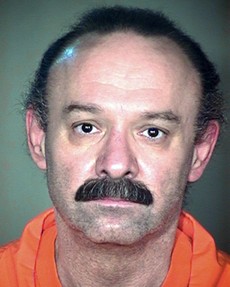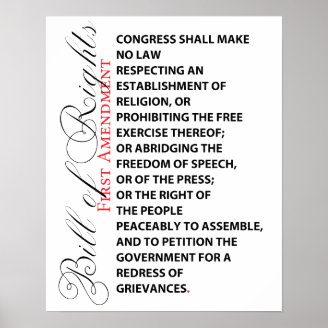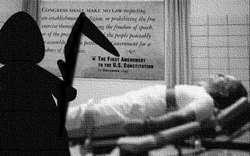 We don't know what will kill Joseph Wood. We don't know who will do it. We cannot test the effects of the drugs used upon him. Nor the legality of their source.
We don't know what will kill Joseph Wood. We don't know who will do it. We cannot test the effects of the drugs used upon him. Nor the legality of their source.
We don't know if the lethal injection has been cross-contaminated with something that would never be allowed. We don't know - until it happens - how long it will take him to die, and in how much agony he will expire.
The State of Arizona refused to tell judges in the United States Court of Appeals for the Ninth Circuit the answers to any of these questions. Hence the ruling, on July 19th 2014, that Mr Wood could not be executed.
His appeal judges concluded, 'We, and the public, cannot meaningfully evaluate execution protocol cloaked in secrecy. It is in the public’s interest that Wood’s injunction be granted.'
There will be those looking on who won't care what takes Mr Wood out, as long as he's dead. Inject him with rat poison, bleach or anthrax; cover his head with a hood and beat him to a pulp with a hammer; throw him off the nearest tall building; or construct a purpose built gas chamber, where all of the inmates of Death Row can be locked inside and Zyklon B can pour down on the subhuman scum. Because that would be no worse than what He did to...
... around this point, most of them have to look up precisely what he did to whom, in order to insert the details on the dotted line.
Let me help out. In 1989, Joseph Wood (then aged 30) was dating Debra Dietz in Tucson, Arizona. Her father Eugene didn't approve of the relationship, and frankly neither would I, as Joseph was in the habit of knocking her about. Upon hearing that Mr Dietz was trying to split them up, Joseph visited the family auto-ware shop, where Debra also worked.
Her father was on the 'phone, so Joseph waited patiently in the store for him to finish. Then took a gun from beneath his jacket and shot Eugene Dietz dead. Understandably, Debra panicked somewhat at this turn of events, but instead of fleeing, she grabbed the 'phone to summon help. Joseph Wood knocked her to the ground and launched an expletive ridden diatribe, as she begged for her life. Then he shot her in the chest too.
We know precisely who and what killed Eugene and Debra Dietz. It was Joseph Wood with a gun. We know where he sourced the gun, and every detail regarding its manufacturer. Stringent laws governed the production and sale of each bullet used. We know all there is to know about Joseph Wood too. A court of law heard evidence regarding his background, psychology, motives, the order of events and his ability to know right from wrong.
In a blaze of such transparency, a representative jury of Arizona citizens determined his guilt. A judge acting upon the mandate of the people of Arizona sentenced Mr Wood to death.
It has taken twenty-five years for that mandate to be fulfilled. But every step along the way was publicly reported and openly perceived by any Arizonian, or indeed anyone else at home or abroad, thus its validity as due process could be observed. The voters of Arizona could quietly assess whether they were happy for this to continue in their name.
Until the point of execution was actually reached. Then all transparency fell into the mire of 'black hood laws', which even the Supreme Court could not penetrate. Voters could no longer tell what they'd given their mandate to enacting, nor what precedents it set.
Only determined anti-death penalty campaigners like myself would wish to stop Joseph Wood being killed for his own sake. But a halt for the sake of transparency and accountability is another thing all together.
And in denying Joseph Wood knowledge concerning the details of his scheduled demise, the State of Arizona also denied its own electorate their First Amendment right to know.





 We don't know what will kill Joseph Wood. We don't know who will do it. We cannot test the effects of the drugs used upon him. Nor the legality of their source.
We don't know what will kill Joseph Wood. We don't know who will do it. We cannot test the effects of the drugs used upon him. Nor the legality of their source.





















 St Tydecho's Churches in West Waleson 09/03/2014
St Tydecho's Churches in West Waleson 09/03/2014
 Goodies for an Outlander Premiere Partyon 03/06/2015
Goodies for an Outlander Premiere Partyon 03/06/2015
 Holocaust Memorial Day Interview with Rainer Höss, Grandson of Rudolf Architect of Auschwitzon 01/24/2015
Holocaust Memorial Day Interview with Rainer Höss, Grandson of Rudolf Architect of Auschwitzon 01/24/2015
 Romantic Valentine Gifts for an Outlander Fanon 01/16/2015
Romantic Valentine Gifts for an Outlander Fanon 01/16/2015



Comments
Hear, hear! That absolutely describes my take on it too.
To have the death penalty you must harbour within yourself a desire to kill another human. As I do not want to kill anyone, I cannot want the death penalty. There is no person, however horrible or inconvenient, whom I dislike enough to want them dead.
I have to say that I agree with the Senator. I think all death penalty sentencing, and the actuality, is torture. When they're botched, it's even more so.
US Senator John McCain (and former VietNam POW) said he considered yesterday's botched execution torture.
This is very true.
Some books can be valued but not enjoyed
Frank - That is a fabulous book! Horrible things to read - given the subject matter and all - but very thought-provoking. You raise some very good points as usual.
The US take on the death penalty is that it's primary to be retribution, and secondly a deterrent. You've answered the first very eloquently, and the statistics answer the second. States without the death penalty actually have fewer capital crimes committed.
Ember - Such things shouldn't make easy reading, nor writing, but necessary ones nonetheless. While people are being killed in the name of The People, then the latter need to be fully aware of what they are mandating.
After an hour of Joseph Wood still not dying, his lawyers rushed an appeal to the Supreme Court to get the execution halted. Their request was refused, but that verdict came back only an hour and half later - 32 minutes after he was finally dead.
Killing someone teaches them no long term lesson, for obvious reasons, and as lessons should be applied in life, killing the person learning them is counter-productive and self-contradictory. Moreover, you cannot predict with certainty that the executed person will learn any lesson at all, for people have responded differently to their deaths. Hans Frank, the butcher of Poland, accepted his execution as just, but some others have died totally unrepentant. For example, one SS officer who had worshipped Satan all of his life faced his execution confident that he would meet his master who would reward him for what he had done in his service. Furthermore, what lesson can be learned by a person wrongly executed. I obtained this information from Nazis and the Occult, by Paul Roland.
That was really intense. Especially at the end there, with the article you linked... I found it difficult to read. I really have no idea how anyone could read/witness what he went through and come to the conclusion that what happened is a mistake or mishap in an otherwise necessary and useful in any manner version of justice.
Five minutes of suffering like that is hard to imagine. Two hours is vile and horrendous. I think the supreme court justices who thought knowledge of what was in that lethal injection wasn't worth making available have this on them.